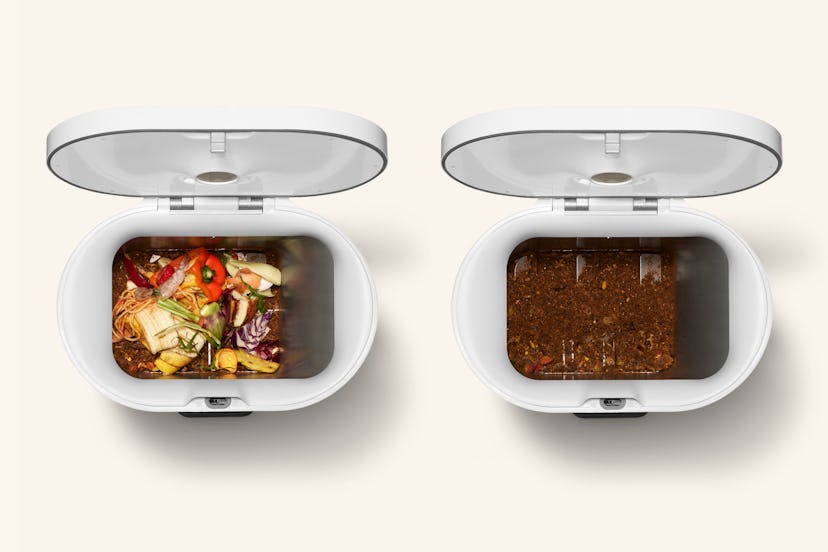This Smart Trash Can Turns Smelly Food Waste Into Chicken Feed (Really)
Mill’s new trash can dries your food waste into an odorless substance that is then sent back and turned into chicken feed. Talk about reducing and reusing.

Food waste stinks. Everyone knows the annoyance of taking the trash out early because onion scraps, seafood, or leftover Brussel sprouts are sitting in the trash can and smelling up your house. But food waste stinks for another reason: It makes up a large percentage of landfill space, and its decomposition produces roughly 10% of global greenhouse gas emissions. Mill, a new company founded by the team that founded Nest, is hoping it’s smart food waste bin might provide the solution to all of the above.
Mill is a $33 per month service that includes a digitally connected food waste bin and free shipping of the dried food waste to a facility to convert it into animal feed. Instead of composting food waste back into dirt, Mill takes your food waste and keeps it in the food cycle by turning into chicken feed, where it cycles back into the chicken and eggs that end up in your fridge.
Here’s how it works.
- Customers put food scraps like crusts, chicken bones, eggshells, and fruit peels into the bin.
- Overnight, the bin grinds up the waste and dries it into an odorless material similar to coffee grounds.
- When the bin is full (once or twice a month), it notifies customers to box up the grounds and mail them to a processing center.
- Mill provides a labeled and prepaid box for shipping, and customers use the app to schedule a pickup.
- Once the grounds reach the processing center, they are pasteurized, checked for contaminants, and turned into animal feed.
Currently, Mill has one processing center in Seattle that converts the grounds into feed. Eventually, the company plans to open facilities around the country to minimize shipping distances.
It remains to be seen whether or not people will pay almost $400 a year for the benefit of reducing landfill space and cutting down their methane emissions (as well as a better kitchen experience -- no more stinky trash, less trips taking out the trash or dripping bags, etc). But it’s safe to assume that there were similar doubts about a $200 thermostat when the Nest was first introduced, and not only is it found in roughly 15 million homes, but states and cities are also offering rebates to encourage their use.
Like Nest, Mill is seeking partnerships with municipalities. The company’s hope is to work with city waste services to get the bins into households en masse.
Reservations for the bins are open now, with Mill planning to ship the bins out in early spring. You can learn more here.
This article was originally published on